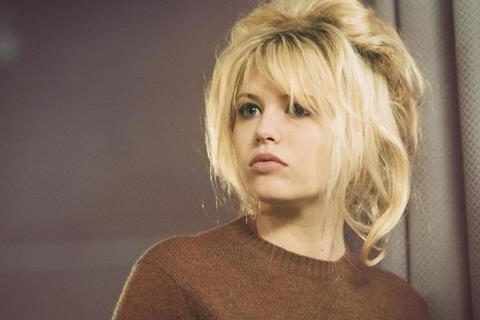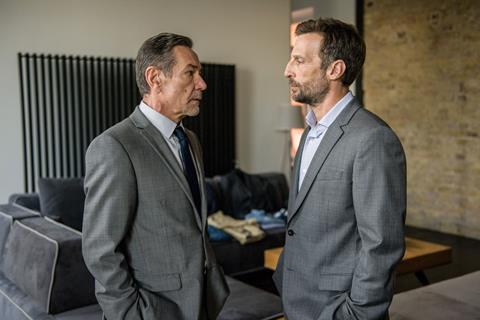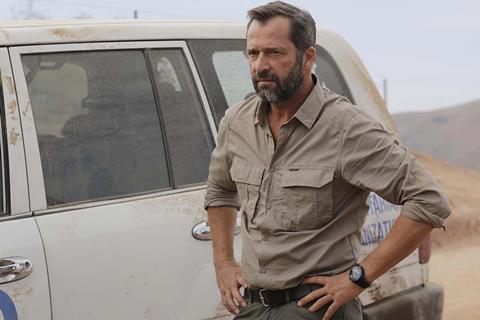
While film directors making the switch to series is nothing new, the crossover has been slower in France where the country’s film industry was less enthusiastic about the storytelling shift amidst a changing audiovisual landscape.
“Ever since the New Wave, French cinema was centred on the director and on the idea that film is the work of one person,” as Laurence Herszberg, festival director of Series Mania puts it. “It was complicated to understand the concept of collective writing and production.”
But now even France’s auteurs have been seduced by the opportunity and the budgets of longform storytelling.
“When we were making Call My Agent [in 2015], at first there were many people who said to me ‘no, I don’t do TV’,” recalls Cedric Klapisch, renowned for the Pot Luck trilogy and now the upcoming Greek Salad series based on those films. “We don’t hear that sentence anymore. Today, no actor would refuse to film a series.”
Series Mania, which recently closed its lively March 2023 edition, has been taking strides to ease the transition for auteurs particularly, with new crossover creative initiative Seriesmakers designed for filmmakers looking to switch gears to series production. Projects by directors Juho Kuosmanen, César Díaz and Beatriz Seigner, whose films have all premiered in Cannes and other A-list film festivals, won the inaugural prizes and will be developing their latest projects into series with Beta’s content division.
Eva Husson whose Girls Of The Sun and Mothering Sunday competed in Cannes and Bang Gang (A Modern Love Story) at TIFF, was also a participant. She is now working on the series Instagods with veteran producer Didar Domehri of Maneki Films.
This year’s Series Mania jury was further proof of the blurred lines within the industry both in France and internationally. Jury members included French film actress Emmanuelle Béart, who starred in series Syndrome E for TF1, and prolific Indian features director Anurag Kashyap, who directed Netflix’ first Indian series Sacred Games.
The jury president was US showrunner and producer Lisa Joy who just directed her first feature Reminiscence starring Hugh Jackman and has another feature in the works.
The official selection read like a Cannes Competition line-up with projects from Pedro and Agustin Almodovar (Fleeting Lies) and Lars Von Trier (Kingdom Exodus).
The French competition included Bardot from veteran writer-director Danièle Thompson, known for co-writing La Reine Margot and directing films Orchestra Seats, Jet Lag and Avenue Montaigne, and her son Christopher Thompson, known for Bus Palladium. The series, produced and sold by Federation Studios and commissioned and financed by France Televisions and Italy’s Mediaset, retraces the early years of French film icon, Brigitte Bardot and her relationship with other well-known real-life big screen names like Roger Vadim.

“It’s true, in France we’re late [to series],” says Federation Studios founder Pascal Breton, who is producing Bardot alongside Judith Rochelois. “The big change here came with Eric Rochant. Rochant was a filmmaker that had never made a series and when he launched The Bureau that really piqued the interest from many filmmakers.”
Rochant’s The Bureau, produced by Alex Berger and Rochant for TOP – The Oligarchs Productions, in association with Federation Studios, debuted in 2015 and became a colossal success for broadcaster Canal+. Federation has sold it to 112 territories abroad where it continues to win critical acclaim and a loyal fan base.
“Little by little, talents saw Netflix and other platforms arriving in France and they followed suit,” Breton says.
Federation and Rochant’s Maui Entertainment recently came together for Disney+ French-language series Tout Va Bien alongside Camille de Castelnau, with an A-list cast known for their work in features including Virginie Efira, Nicole Garcia and Sara Girardeau. Breton said he has more prestige fiction projects in the works with Rochant as well as with Salle.
Growth mindset
Rochant aside, the lack of auteur-showrunners in France may be due to the fact that, according to Breton, “It’s not the same way of thinking. It’s this capacity to change methods that all filmmakers don’t necessarily have. Abroad, it’s more natural. Here in France, I think filmmakers are so used to doing things a certain way, that the transition has been more difficult.”
Time and pacing are also factors. “[TV] takes much longer,” says Breton. “There are months of preparation, four to five months of filming, and a more intense production schedule. We do four to five minutes of a series per day whereas with a feature film, we shoot two to three minutes per day. It’s almost twice as fast.”
Even Cannes’ Thierry Fremaux, one of France’s most famous defenders of traditional theatrical cinema, has dipped his toes series and programmed episodes of both Olivier Assayas’ miniseries Carlos and David Lynch’s Twin Peaks at the festival. This year there are whispers HBO’s The Idol, starring Lily Rose-Depp, will turn up on the Croisette.
Fabrice de la Patellière, former head of fiction at Canal+ who partnered with Studiocanal to launch his own production company 2e Bureau last year says Assayas’ Carlos warmed up French directors to the idea of making TV. “It was a great auteur from cinema who jumped to television. I really saw the way filmmakers looked at TV change after that. They said, ‘If Assayas went, we can go too.’”
Younger auteurs in France are more open to exploring both mediums “There is a new generation of directors in France who are just as influenced by series as they are by films,” says De la Patellière. He pioneered an era at Canal+ that brought talent from features to the world of series including The Bureau, in addition to shows such as Spiral, Baron Noir and Braquo.
De la Patellière highlights the importance too of producers crossing over into series as key to wooing top talent. “Today we see more and more French producers opening new departments in their companies for series,” he said.
Veteran French producer Alain Goldman of Légende, whose credits include La Vie En Rose, An Officer And A Spy, and The Connection, was spotted at Series Mania this year. He is now producing series through his Montmartre Films, part of the Banijay group. The company’s Alphonse for Prime Video from feature film director Nicolas Bedos stars a bevy of big screen talent including Jean Dujardin, Pierre Arditi, Charlotte Gainsbourg and Nicole Garcia and has already been generating a great deal of buzz.
Yael Fogiel, the prolific producer at Les Films du Poisson (Berlin Encounters winner Orlando, My Political Biography and Cannes contender Yossi Avaram’s There is No Shadow In The Desert) has just announced a partnership with Arte France and Topkapi Films alongside Quiddity Productions for The Affair showrunner Hagai Levy’s next project, a six-part WW2 miniseries called The Girl Who Learned How to Kneel.

Haut et Court, whose Carole Scotta and Barbara Letellier were named best producers of the year by France’s Cesar Academy and whose Night Of The 12th was named best film, is also expanding further into series with Arte title No Man’s Land, a Syrian war-set thriller that just wrapped shooting its second season.
Auteur vision, global audience
The arrival in France of Netflix, Amazon, Disney+ and Apple TV+, all of whom were out in a big way at this year’s Series Mania festival and forum, have also given French auteurs, particularly of the indie variety, bigger budgets with which to tell their stories and a platform to reach a global audience. French windowing laws require the streamers to invest in locally commissioned and acquired content and the slates unveiled at Series Mania are proof the boom in projects with high production value from local auteurs is in full swing.
“It isn’t counterintuitive to have an auteur vision and also create content for wide audiences,” suggests Thomas Dubois, head of originals at Amazon Prime Video in France. “Services like us help to reconcile the two.”
A good example of just how firmly the worlds of film and TV have infiltrated each other is Showtime’s The Department. George Clooney will direct and produce the spy series through his Smokehouse Pictures. Clooney began his career in TV before becoming one of the world’s most successful film actors and directors. He’s now moving back to TV - for what is the US remake of the series that inspired it all in France: Eric Rochant’s The Bureau.






![The Brightest SunScreen[Courtesy HKIFF]](https://d1nslcd7m2225b.cloudfront.net/Pictures/274x183/3/5/0/1448350_thebrightestsunscreencourtesyhkiff_312678.jpg)


















No comments yet